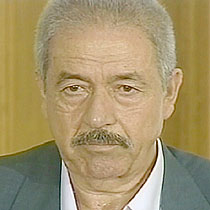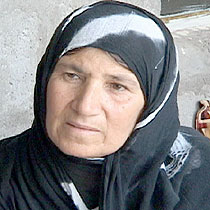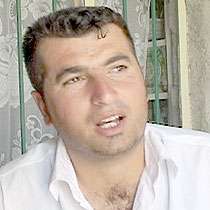2007年VOA标准英语-Kurdish Victims of Chemical Ali Celebrate His I(在线收听)
Irbil, Iraq
06 September 2007
An Iraqi appeals court on Tuesday [September 4th] upheld death sentences for Ali Hassan al-Majid, the man known as "Chemical Ali," and two other lieutenants of Saddam Hussein. All were convicted of crimes against humanity for their roles in massacres of Kurds two decades ago. VOA's Brian Padden spoke to a number of surviving victims of these massacres who are celebrating what they say is justice long delayed.

Ali Hassan al-Majid, also known as Chemical Ali
 |
| Nazreen Omar Hoffman |
Abdullah Jabar was only five years old when his father was killed. But he too was overcome with emotion when he heard that Chemical Ali would be executed.
 |
| Abdullah Jabar |
The Iraqi appeals court ruled that Ali Hassan al-Majid and his two co-defendants will be executed within 30 days. Ali was Saddam Hussein's cousin and once among the most feared men in Iraq. He was one of the architects of Operation Anfal, a series of deportations and mass killings campaigns that killed as many as 180,000 Kurds in the 1980s. He earned the nickname Chemical Ali for allegedly ordering the poison gas attack that killed more than 5,000 Kurds in the Halabja in 1988.
Chnar Abdullah heads the Kurdish Anfal Ministry that provides assistance to Ali's victims. She says his execution is an important public acknowledgment of the atrocities committed against the Kurds. "The people, the victims, will never forget. Everyday the pain is fresh in their minds and they cannot forget and maybe cannot forgive. What we want to do now is make the case known to all people, all nations, all countries."
Abdullah says Ali's execution is ultimately a hopeful sign that even after 20 years, justice can prevail.